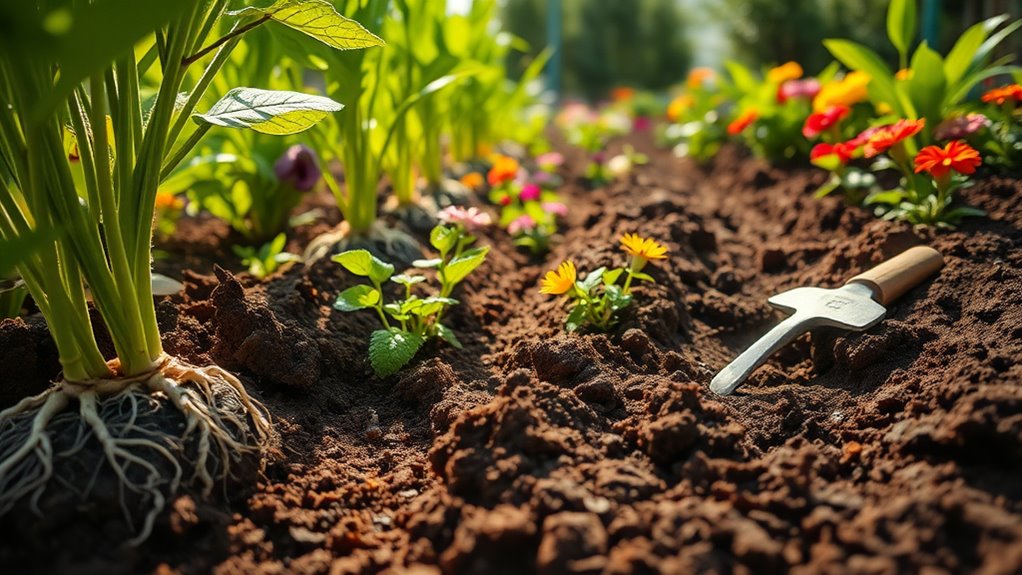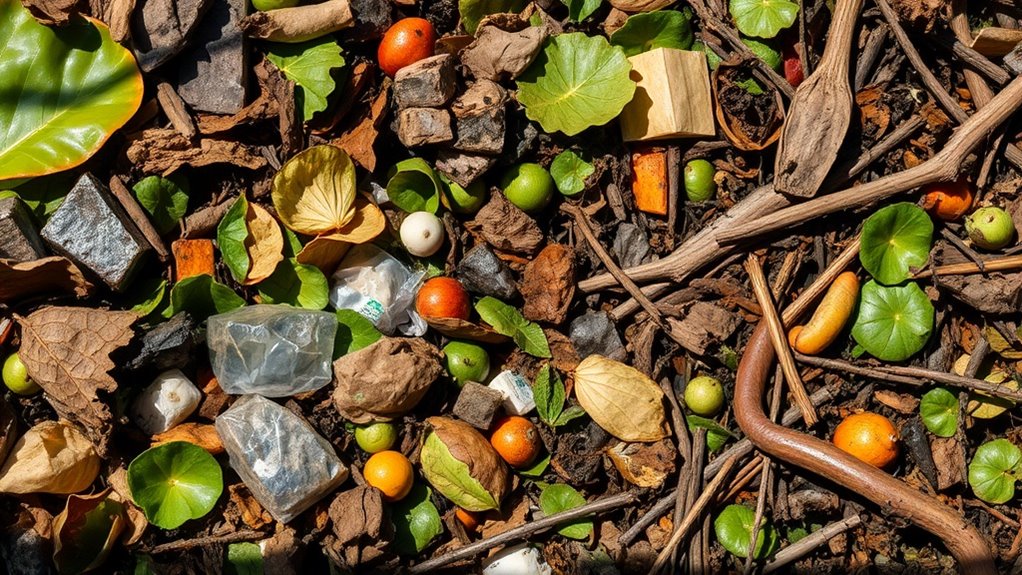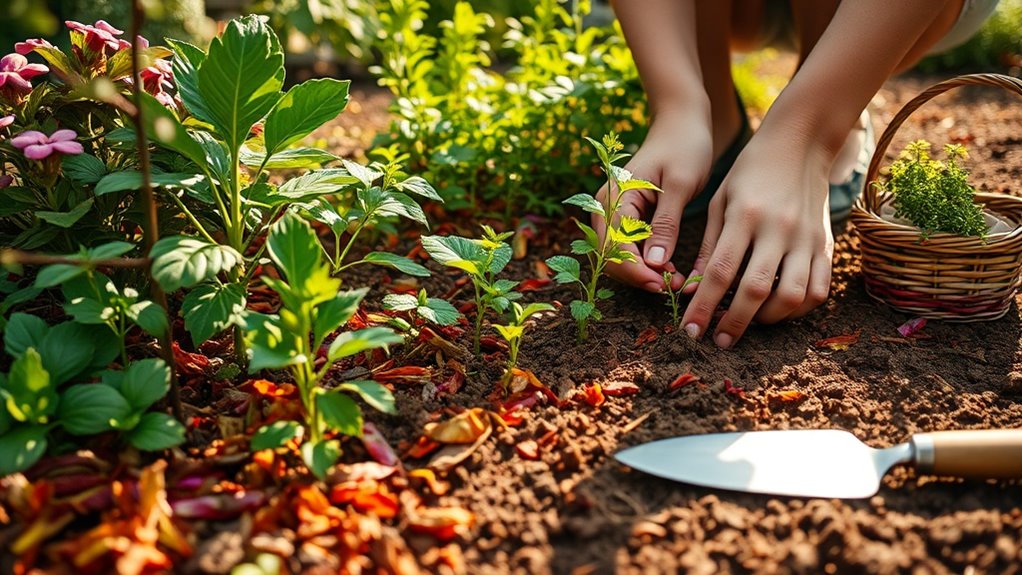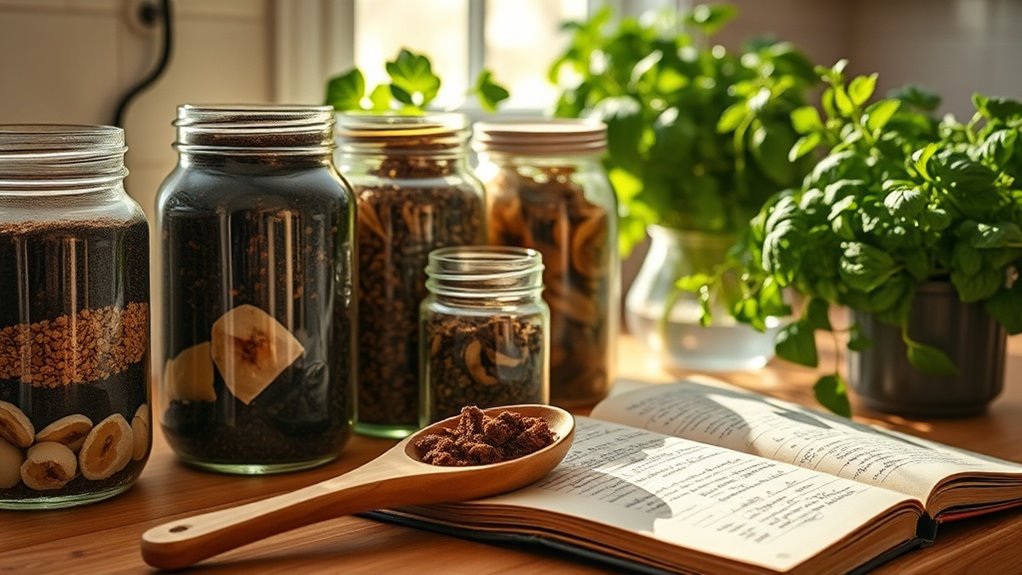How I Improved My Garden Just by Fixing My Soil
Your garden is like a canvas, and soil health is the foundation of your masterpiece. By examining soil composition, you’ll uncover its hidden potential for growth. Testing pH levels, adding organic matter, and incorporating balanced fertilizers are just a few steps that can transform your plants. But what sustainable practices will ensure your garden flourishes year after year, while minimizing pests? Discover the key to creating a thriving ecosystem beneath the surface.
Understanding Soil Composition
Soil is the lifeblood of your garden, providing essential nutrients and support for plant growth.
To enhance soil health, focus on the composition: a mix of sand, silt, and clay promotes aeration and drainage. Organic matter improves nutrient retention and microbial activity. Essential soil ingredients like nitrogen, phosphorus, and potassium are critical for plant development.
Understanding the balance of these elements will lead to healthier plants and a thriving garden ecosystem.
Assessing Soil Health
How can you determine if your garden soil is healthy?
Start by evaluating these four key indicators:
-
pH Level: Use a soil pH test kit to check acidity or alkalinity.
-
Texture: Assess soil structure—loam is ideal.
-
Organic Matter: Ensure there’s adequate decomposed material.
-
Microbial Activity: Look for earthworms and other signs of life.
These factors will guide your garden’s health assessment effectively. Additionally, recognizing signs of struggling soil can help you implement the right solutions to restore its vitality.
Essential Amendments for Improvement
Amending your garden soil is crucial for enhancing its fertility and overall health. Essential amendments include organic matter like compost and well-rotted manure, which improve soil structure and nutrient content.
Incorporating balanced fertilizers provides necessary macronutrients, while adding lime can adjust pH levels. For clay soils, gypsum can enhance drainage, and for sandy soils, peat moss increases water retention, promoting robust plant growth. Additionally, using natural materials such as bone meal and green manure can further enrich your soil and support a healthy ecosystem.
Sustainable Practices for Long-Term Benefits
What steps can you take to ensure your garden thrives sustainably over the long haul?
Consider implementing these practices:
-
Rotate crops annually to enhance soil nutrients.
-
Use cover crops to prevent erosion and suppress weeds.
-
Apply organic mulches to retain moisture and regulate temperature.
-
Integrate composting to enrich your soil and reduce waste.
Additionally, incorporating natural tricks can significantly boost soil quality in just a week, providing immediate benefits for your plants.
These strategies provide lasting health to your garden ecosystem.
Observing Changes in Garden Productivity
As you implement sustainable practices in your garden, you may notice significant changes in productivity over time.
Improved soil health leads to enhanced nutrient availability, better water retention, and increased microbial activity.
Observe your plant growth, fruit yield, and pest resilience; these indicators signal a thriving ecosystem. Simple ways to evaluate garden soil health can help you determine the effectiveness of your changes as well.
Regular testing and monitoring will provide insights, guiding further adjustments to optimize your garden’s output.





